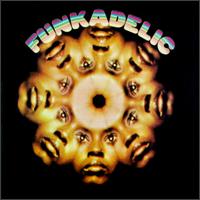
Funkadelic is the debut album by the American funk rock band Funkadelic, released in 1970 by Westbound Records.

Hazel Thereasa O'Connor is a British singer-songwriter and actress. She became famous in the early 1980s with hit singles "Eighth Day", "D-Days" and "Will You?" She also starred in the 1980 film Breaking Glass.

Who Are You is the eighth studio album by English rock band the Who, released on 18 August 1978 by Polydor Records in the United Kingdom and MCA Records in the United States. Although the album received mixed reviews from critics, it was a commercial success, peaking at number 2 on the US charts and number 6 on the UK charts.

Lodger is the 13th studio album by the English musician David Bowie, released on 25 May 1979 through RCA Records. Recorded in collaboration with musician Brian Eno and producer Tony Visconti, it was the final release of his Berlin Trilogy, following Low and "Heroes". Sessions took place in Switzerland in September 1978 during a break in the Isolar II world tour, and in New York City in March 1979 at the tour's end. Most of the same personnel from prior releases returned, and future King Crimson guitarist Adrian Belew joined from the tour. The sessions saw the use of techniques inspired by Eno's Oblique Strategies cards, such as having the musicians swap instruments and play old songs backwards.
The "Alabama Song"—also known as "Moon of Alabama", "Moon over Alabama", and "Whisky Bar"—is an English version of a song written by Bertolt Brecht and translated from German by his close collaborator Elisabeth Hauptmann in 1925 and set to music by Kurt Weill for the 1927 play Little Mahagonny. It was reused for the 1930 opera Rise and Fall of the City of Mahagonny and has been recorded by the Doors and David Bowie.
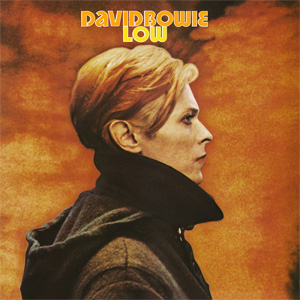
Low is the eleventh studio album by the English musician David Bowie, released on 14 January 1977 through RCA Records. The first of three collaborations with producer Tony Visconti and musician Brian Eno that became known as the Berlin Trilogy, the project originated following Bowie's move to France in 1976 with his friend Iggy Pop to rid themselves of their drug addictions. There, Bowie produced and co-wrote Pop's debut studio album, The Idiot, featuring sounds the former would explore on his next record. After completing The Idiot, sessions for Low began at Hérouville's Château d'Hérouville in September 1976 and ended in October at Hansa Studios in West Berlin, where Bowie and Pop had relocated.

The Slider is the seventh studio album by English rock band T. Rex, and the third since abbreviating their name from Tyrannosaurus Rex. It was released on 21 July 1972 by record labels EMI and Reprise. Two number-one singles, "Telegram Sam" and "Metal Guru", were released to promote the album. Issued at the height of the band's popularity, The Slider received acclaim from critics, and reached number 4 in the UK charts and number 17 in the US.
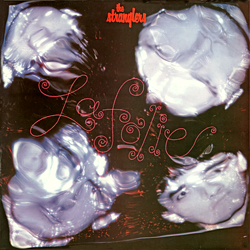
La folie is the sixth studio album by English new wave band the Stranglers. It was released on 9 November 1981, through the EMI record label Liberty.

KooKoo is the debut solo album by American singer Debbie Harry, released on July 27, 1981, by Chrysalis Records. Produced by Nile Rodgers and Bernard Edwards of Chic, the album was recorded whilst Harry took a break from her band Blondie. It was a moderate commercial success, reaching number 25 on the US Billboard 200 and number six on the UK Albums Chart.
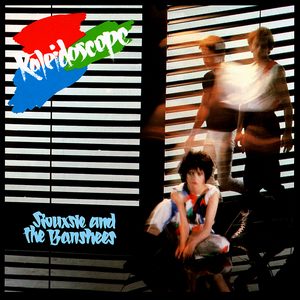
Kaleidoscope is the third studio album by British rock band Siouxsie and the Banshees, released in 1980 by record label Polydor. With the departure of John McKay and Kenny Morris and their replacement by two new musicians, Budgie on drums and John McGeoch on guitars, the band changed their musical direction and offered an album containing a wide variety of colors. "It was almost a different band", said Siouxsie.

Faith and Courage is the fifth studio album by Irish singer Sinéad O'Connor, released on 13 June 2000, by Atlantic Records. It was O'Connor's first release in three years, her previous album being the greatest hits package So Far... The Best of Sinéad O'Connor in 1997, plus it was her first studio album in six years.
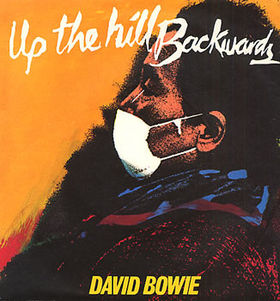
"Up the Hill Backwards" is a song by English musician David Bowie, released on his 1980 album Scary Monsters . It was later issued by RCA Records as the fourth and final single from the album in March 1981. Originally written under the title "Cameras in Brooklyn", the song was recorded between February and April 1980 at the Power Station in New York City and Good Earth Studios in London. The recording features backing vocalists, guitar contributions from Robert Fripp and acoustic guitar played by co-producer Tony Visconti. Lyrically, the song concerns the struggles of facing a crisis, partially influenced by Bowie's divorce from his wife Angie. Musically, the song contains numerous time signature changes and a Bo Diddley-inspired beat.

Vive Le Rock is the third solo album by Adam Ant, released in September 1985.
"Hanging Around" is a song by English rock band the Stranglers, released on their 1977 debut album Rattus Norvegicus. The song was written by the band's guitarist, Hugh Cornwell, and is notable for its driving bassline and its lyrics about urban alienation.
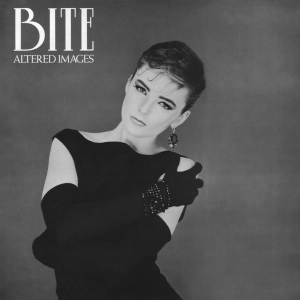
Bite is the third studio album by Scottish new wave band Altered Images, released on 17 June 1983 by Epic Records in the UK, and Portrait Records in the US. Produced by Mike Chapman and Tony Visconti, it features the UK top ten single "Don't Talk to Me About Love" as well as other singles: "Bring Me Closer", "Love to Stay" and "Change of Heart". It would be the band's last album for almost 40 years.

Breaking Glass is the debut album by the English singer Hazel O'Connor. It is the soundtrack album to the film Breaking Glass, featuring songs written and performed by O'Connor who also stars in the film. It was released in 1980 by A&M Records. The album reached number 5 in the UK Album Charts, remaining on the chart for 38 weeks and was certified Gold by the British Phonographic Industry. Two of the musicians in her band, Bob Carter and Andy Duncan, were members of Linx.

"Will You?" is a song by British singer-songwriter Hazel O'Connor, released as the fourth single from her debut album, the soundtrack to the film Breaking Glass. It was a top ten hit in both the UK and Ireland, and was certified silver in the UK for shipments of 250,000 copies.

Jessica Lee Morgan is a British singer and songwriter.

"D-Days" is a song by British singer-songwriter Hazel O'Connor, released in March 1981 as a single from her second album, Sons and Lovers. The single was produced by Nigel Gray and remixed for single release by Tony Visconti, who had produced her previous album Breaking Glass. The song stands for 'Decadent Days' and was inspired by a trip to a night in London where there were lots of poseurs and "people looking very bizarre". It peaked at number 10 on the UK Singles Chart.

Sons and Lovers is the second album by English singer Hazel O'Connor, released in November 1980 by Albion Records. It was reissued on CD with bonus tracks on 30 March 2018 by Cherry Red Records.

















